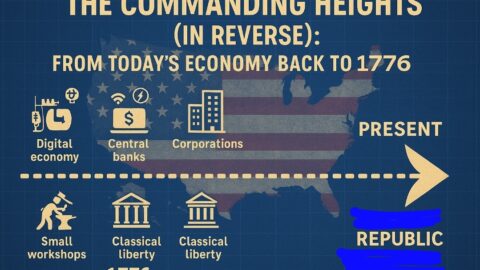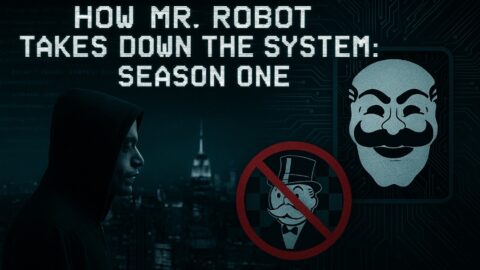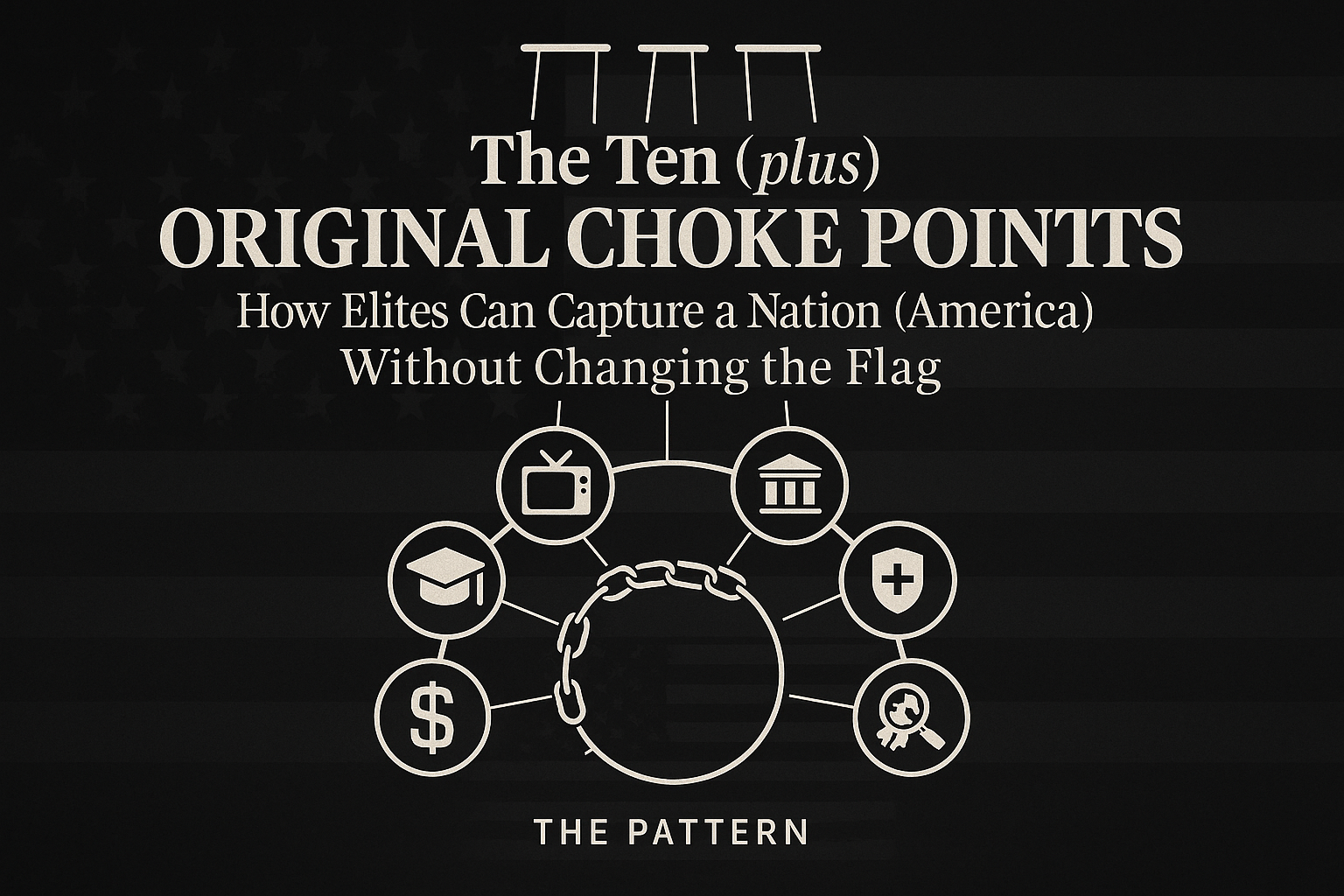“Money, not morality, constitutes the principle of commercial nations.” — Thomas Jefferson
Thomas Jefferson’s quote highlights the reality that commercial nations prioritize financial gain over moral or ethical considerations. This idea has been echoed by various thinkers, economists, and political figures throughout history. Here are some related quotes and perspectives on the nature of commercial empires, corporations, and globalized economies:
Quotes on Commercial Nations and Their Lack of Loyalty
“Merchants have no country. The mere spot they stand on does not constitute so strong an attachment as that from which they draw their gains.”
— Thomas Jefferson (Letter to Horatio G. Spafford, 1814)
- This reinforces his belief that economic interests supersede national loyalty, especially in a world where wealth is the driving force of decision-making.
“A merchant is naturally a citizen of the world in his knowledge and his interests.”
— Montesquieu, The Spirit of the Laws (1748)
- Montesquieu argues that commerce dissolves national boundaries, making traders and businesses more loyal to profits than to any particular country.
“The chief business of the American people is business.”
— Calvin Coolidge (1925)
- Coolidge’s statement acknowledges the centrality of commerce in shaping national policy, often at the expense of moral considerations.
“When morality comes up against profit, it is seldom that profit loses.”
— Shirley Chisholm, First Black Woman Elected to U.S. Congress
- This highlights how corporate and commercial interests typically outweigh ethical concerns.
“It is difficult to get a man to understand something when his salary depends on his not understanding it.”
— Upton Sinclair
- This applies to both individuals and commercial entities, who often ignore moral considerations when money is on the line.
Historical & Modern Contexts: How Commercial Nations Operate Without Borders
- British East India Company & Colonial Exploitation:
The British Empire outsourced much of its colonial rule to private enterprises like the East India Company, demonstrating how commerce could drive global expansion without regard for national interests. - Multinational Corporations & Globalism:
Today, corporations like Apple, Google, and Amazon transcend national borders, manufacturing in one country, banking in another, and lobbying in yet another—all in pursuit of profit, not loyalty to any nation. - War & Profiteering:
The military-industrial complex thrives because war generates revenue. Companies involved in defense contracts have financial incentives to maintain global conflicts. - Financialization of Everything:
In modern finance, hedge funds, banks, and investment firms control massive wealth and influence politics more than elected governments, reinforcing Jefferson’s concerns about money overshadowing morality.
The End Goal of Commercial Nations
Jefferson’s warning about commercial nations still applies today. Whether through corporate globalization, war profiteering, or multinational financial dominance, the pursuit of profit remains the primary motivation, often at the cost of morality, sovereignty, and human well-being.
Consolidation into a Worldwide Conglomerate of Dictatorial Authority
The consolidation of power, economic globalization, and the erosion of national sovereignty align with concerns many have regarding a “New World Order” (NWO). This idea is often linked to biblical prophecy, particularly the Book of Revelation, which describes a future global system under centralized control before the return of Christ.
Is the New World Order Linked to Revelation?
The Book of Revelation speaks of a final world empire led by a figure known as the Beast (Antichrist), who will control commerce, government, and religion. Here are some relevant passages:
- Revelation 13:16-17 (Global Economic Control)
“And he causeth all, both small and great, rich and poor, free and bond, to receive a mark in their right hand, or in their foreheads: And that no man might buy or sell, save he that had the mark, or the name of the beast, or the number of his name.”- This suggests a system of total economic control, which could be facilitated by digital currency, centralized banking, or surveillance technology.
- Revelation 17:12-13 (Global Governance)
“And the ten horns which thou sawest are ten kings, which have received no kingdom as yet; but receive power as kings one hour with the beast. These have one mind, and shall give their power and strength unto the beast.”- Many interpret this as a union of nations or political leaders consolidating power under a single authority.
- Revelation 18 (Babylon’s Fall – Economic Collapse)
- This chapter describes the downfall of a global economic system, where merchants and rulers mourn the destruction of a powerful, wealthy city (symbolic of a financial empire).
- Some see parallels with modern corporate globalization, central banking, and trade empires.
Economic Globalization & the New World Order
Financial Control (Central Banking & Digital Currencies)
- The push toward Central Bank Digital Currencies (CBDCs) could give centralized financial institutions total control over people’s ability to buy and sell.
- The IMF, World Bank, and WEF are advocating for digital financial control, aligning with concerns about Revelation’s prophecies.
Corporate Power Over Nations
- Multinational corporations operate above national laws and drive global policies.
- Corporate mergers and private equity firms consolidate wealth and reduce economic sovereignty, making independent economies obsolete.
Surveillance & Social Credit Systems
- Nations like China have implemented social credit systems, which restrict freedoms based on behavior.
- AI, facial recognition, and digital IDs could lead to global monitoring, enabling Revelation’s prophecy of a controlled economy.
Consolidation of Nations (Globalism & Regional Unions)
- The United Nations, European Union, BRICS, and NAFTA represent steps toward consolidating nations into larger governing blocs.
- Some theorists believe this could pave the way for a one-world government.
Is the Modern World System Leading to the Biblical End Times?
- Yes, if you believe global centralization, financial control, and mass surveillance fulfill biblical warnings.
- No, if you see these as natural trends of capitalism, technology, and governance rather than prophecy.
Conclusion
The consolidation of power, financial control, and global surveillance align with the concept of a “New World Order” and biblical prophecy in Revelation. Whether this is a direct fulfillment of prophecy or a natural consequence of globalization depends on your perspective. However, many of the conditions described in Revelation appear to be unfolding in today’s world, raising questions about whether humanity is heading toward the final stages of prophetic history.
Additional Quotes on the Invisible Commercial Interests and How They Steer Nations
- “Commerce defies every wind, outrides every tempest, and invades every zone.”
— Thomas Gray- This highlights how commerce operates without national loyalty or ethical concerns, expanding wherever profit exists.
- “When plunder becomes a way of life for a group of men in society, over the course of time they create for themselves a legal system that authorizes it and a moral code that glorifies it.”
— Frédéric Bastiat- This describes how corporate and banking elites manipulate laws and ethics to justify their economic dominance.
- “The world is governed by very different personages from what is imagined by those who are not behind the scenes.”
— Benjamin Disraeli- Disraeli suggests that economic and financial elites, not elected leaders, control the world’s direction.
- “Money has no motherland; financiers are without patriotism and without decency; their sole object is gain.”
— Napoleon Bonaparte- Napoleon recognized that bankers and multinational elites have no loyalty to nations—only to profit.
- “The real rulers in Washington are invisible, and exercise power from behind the scenes.”
— Felix Frankfurter, U.S. Supreme Court Justice (1952)- This aligns with the belief that corporate and financial interests, not governments, dictate policy.
- “Give me control of a nation’s money and I care not who makes its laws.”
— Mayer Amschel Rothschild- This suggests that banking and financial elites hold more power than governments, reinforcing Jefferson’s fears.
- “The few who understand the system will either be so interested in its profits, or so dependent on its favors, that there will be no opposition from that class, while, on the other hand, the great body of people, mentally incapable of comprehending the tremendous advantage that capital derives from the system, will bear its burdens without complaint.”
— Rothschild Brothers of London, 1863- This illustrates how the financial elite manipulate economies, while the general public remains unaware.
- “The issue which has swept down the centuries and which will have to be fought sooner or later is the people versus the banks.”
— Lord Acton- This frames history as a struggle between nations and banking cartels, reinforcing the dangers of financial control over governments.
- “History records that the money changers have used every form of abuse, intrigue, deceit, and violent means possible to maintain their control over governments.”
— James Madison- Madison warned that financial elites and banking institutions manipulate governments for their own ends.
- “A government that robs Peter to pay Paul can always depend on the support of Paul.”
— George Bernard Shaw- This highlights how governments use wealth redistribution to maintain power, often favoring corporate interests and banking elites.
- “The rich rule over the poor, and the borrower is slave to the lender.”
— Proverbs 22:7 (Bible)- This biblical passage aligns with the idea that debt and financial control enslave nations and individuals.
- “Fascism should more properly be called corporatism, since it is the merger of state and corporate power.”
— Benito Mussolini- This aligns with modern fears that governments serve corporate elites rather than their citizens.
- “There are no nations. There are only markets.”
— Jeff Bezos (Paraphrased from an interview on globalization)- This exemplifies how modern billionaires and corporations operate beyond national interests, focusing purely on profit.
- “Commerce defies every wind, outrides every tempest, and invades every zone.”
— Robert Green Ingersoll- This suggests that commerce is relentless and unbound by morality or borders.
- “A great industrial nation is controlled by its system of credit. Our system of credit is concentrated. The growth of the nation, therefore, and all our activities are in the hands of a few men. We have come to be one of the worst ruled, one of the most completely controlled and dominated governments in the civilized world.”
— Woodrow Wilson (1913), reflecting on the Federal Reserve- Wilson recognized that financial interests, not elected officials, were truly in charge of the country.
- “There is no such thing as an independent nation anymore. Money crosses borders freely, and those who control money control nations.”
— Attributed to various global finance critics- This aligns with how global corporations and financial institutions dictate policies over governments.
- “Give me control of a nation’s money supply, and I care not who makes its laws.”
— Mayer Amschel Rothschild- Suggests that financial power supersedes political power.
- “The few who understand the system will either be so interested in its profits, or so dependent on its favors, that there will be no opposition from that class; while, on the other hand, the great body of the people, mentally incapable of comprehending the tremendous advantages, will bear its burden without complaint.”
— Attributed to the Rothschild banking dynasty- Highlights how commercial and financial elites maintain power while the general population remains unaware.
- “The modern banking system manufactures money out of nothing. The process is perhaps the most astounding piece of sleight of hand that was ever invented.”
— Sir Josiah Stamp, Former Director of the Bank of England- Exposes how money, rather than morality or labor, is the basis of modern economies.
- “We are grateful to The Washington Post, The New York Times, Time Magazine, and other great publications whose directors have attended our meetings and respected their promises of discretion for almost forty years. It would have been impossible for us to develop our plan for the world if we had been subject to the bright lights of publicity during those years. But, the world is now more sophisticated and prepared to march towards a world government.”
— David Rockefeller, Trilateral Commission Speech, 1991- A clear admission that financial elites have been working toward consolidating global power.
- “The world is governed by very different persons from what is imagined by those who are not behind the scenes.”
— Benjamin Disraeli, British Prime Minister (1844)- Suggests that commercial and banking interests control the world far more than elected leaders.
- “There is no instance of a nation benefitting from prolonged warfare.”
— Sun Tzu, The Art of War- Commercial and military-industrial complexes, however, profit immensely from war.
- “The first truth is that the liberty of a democracy is not safe if the people tolerate the growth of private power to a point where it becomes stronger than their democratic state itself. That, in its essence, is fascism—ownership of government by an individual, by a group, or any controlling private power.”
— Franklin D. Roosevelt- Warns against corporate and financial interests overriding democratic institutions.
- “The business of America is business.”
— Calvin Coolidge- Reflects the deep-rooted philosophy that the U.S. is driven more by economic interests than political ideology.
- “The aim of the plutocracy is world power.”
— George Bernard Shaw- Suggests that financial elites and multinational corporations are more interested in global control than serving individual nations.
- “There are no nations. There are no peoples. There is only the IBM and ITT and AT&T and Dupont, Dow, Union Carbide, and Exxon. These are the nations of the world today.”
— Arthur Jensen, from the film Network (1976)- A fictional quote, but one that eerily reflects the real power multinational corporations wield.







